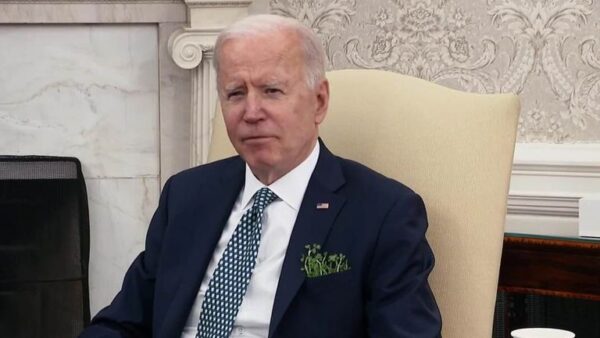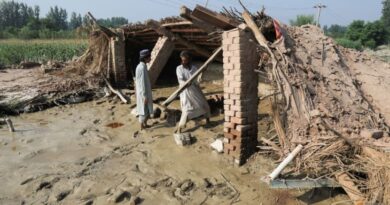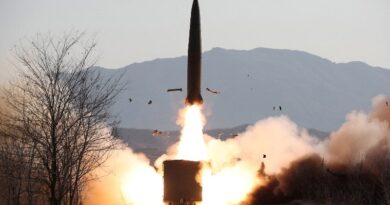Biden in Belfast to mark 25 years of Good Friday Agreement
US President Joe Biden is to visit Belfast, the capital of Northern Ireland, on Tuesday (April 11) to mark the 25th anniversary of the Good Friday Agreement.Biden tweeted earlier in the day, “25 years ago, Northern Ireland’s leaders chose peace. The Belfast/Good Friday Agreement ended decades of violence and brought stability. I look forward to marking the anniversary in Belfast, underscoring the US commitment to preserving peace and encouraging prosperity.”
The Good Friday Agreement, which ended 30 years of the violence known as ‘The Troubles’, has been hailed as a model deal to end long-standing conflicts, and fetched a joint Nobel peace prize for David Trimble and John Hume, then leaders of the two opposing parties in Northern Ireland. The leaders who will visit to mark its anniversary include, apart from Biden, former US president Bill Clinton, Britain’s King Charles, former UK Prime Minister Sir Tony Blair, and former Ireland Prime Minister (or Taoiseach) Bertie Ahern.
However, the anniversary celebrations will be shadowed by the strain Brexit has put on the agreement.What is the Good Friday Agreement, why is it considered so important, and how is Brexit impacting itWhat is the Good Friday Agreement?The Good Friday Agreement was signed on April 10, 1998, between factions of Northern Ireland, and the governments of Britain and Ireland, to end decades of violence in Northern Ireland among those who wished to remain with the United Kingdom (UK) and those who wanted to join Ireland.
The negotiators included then British Prime Minister Tony Blair, then Irish Prime Minister Bertie Ahern, George Mitchell, a former Democratic senator who acted as the envoy of then US President Bill Clinton, and eight parties from Northern Ireland.
What were The Troubles?
Northern Ireland was created in May 1921 by partitioning Ireland, and consists of the six northeastern counties of the island. In 1922, the rest of Ireland gained independence from the British (today’s Republic of Ireland, with its capital in Dublin). Northern Ireland remained with the United Kingdom, but tensions simmered between the side loyal to the Crown, mostly Protestants, and the faction wanting to join the Republic, mostly Catholics.
By the 1960s, the Protestants had become more powerful than the Catholics, who claimed discrimination. By the end of this decade, paramilitary groups from both sides, such as the Irish Republican Army (IRA) and Ulster Volunteer Force (UVF) were attacking each other. The police and the British Army, trying to quell the violence, were both accused of atrocities and more violence.
The Bloody Sunday of 1972 saw British soldiers kill 14 unarmed protesters. In 1979, the IRA killed Lord Louis Mountbatten, the former Governor General of India, along with his young grandson. In 1984, they tried to assassinate then-British Prime Minister Margaret Thatcher. In all, according to the BBC, The Troubles claimed the lives of more than 3,500 people.What were the terms of the Good Friday Agreement?By the mid-1990s, momentum for peace was building. In April 1998, the negotiators gathered at Hillsborough Castle outside Belfast. As The Guardian reported, “Getting Sinn Féin [seen as the IRA’s political arm] and unionists in the same building was a feat in itself.”
The Washington Post wrote about the negotiations, “Blair lived on Mars bars and sandwiches and only went outside once over three days. Wind and sleet hammered the stone castle. Children sang for peace outside its gate — one young boy even attached green and yellow balloons to its walls.”
The children “singing outside the gate” acted as moral pressure on the negotiators, many of whom were close to walking out at multiple points.Eventually, a deal was thrashed out, which many believe is deliberately ambiguous on several fronts. It in a way allowed all groups to stick to the points most precious to them, while agreeing on ending violence.
Thus, Northern Ireland would remain part of the UK, but could join Ireland if, in a referendum, a majority of people on both sides voted for it. People born in Northern Ireland could have Irish or British nationality or both. Weapons by paramilitary groups would have to be decommissioned, but people in jail for violence so far would be released.




